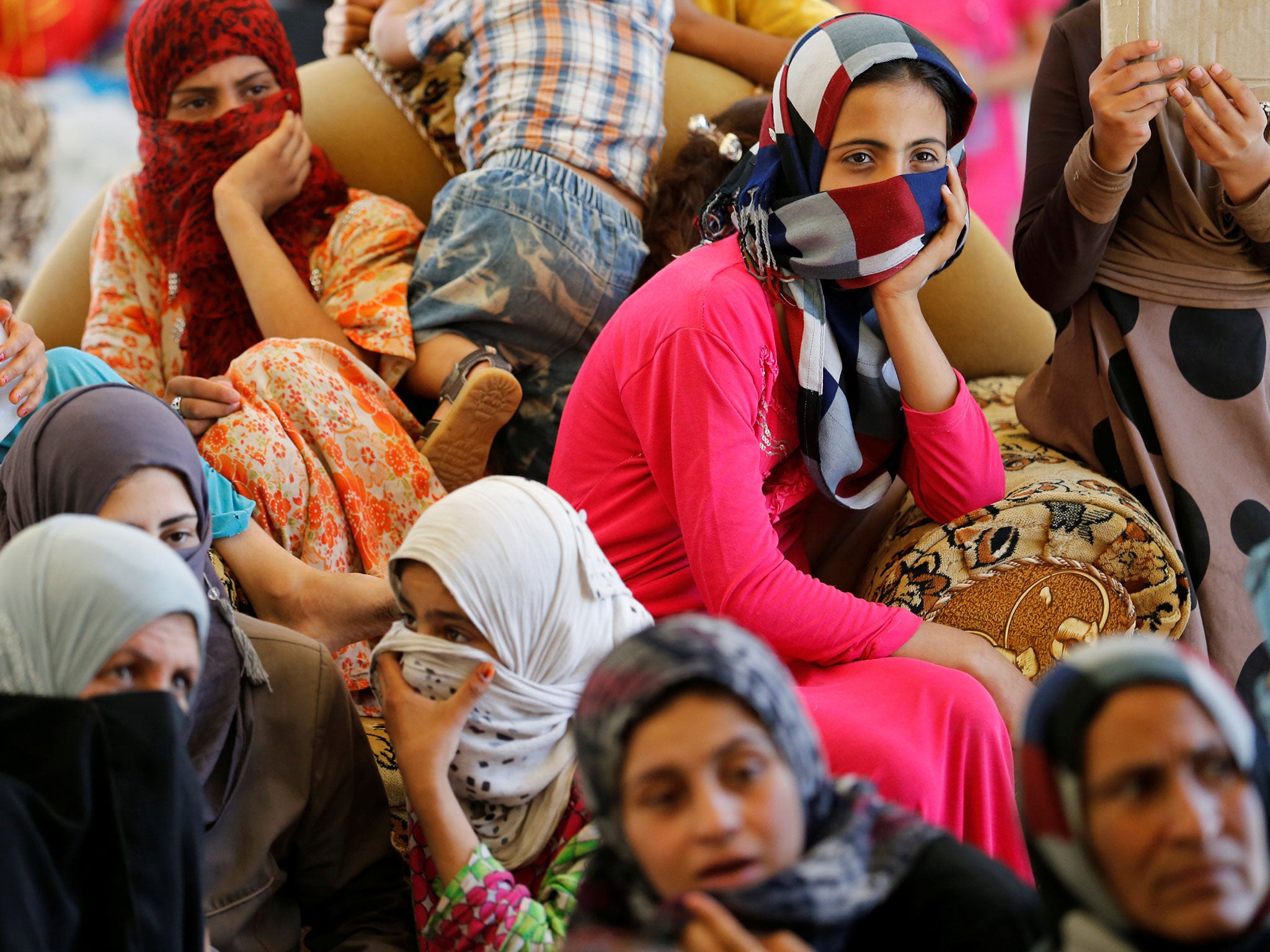War against Isis: UN warns that offensive to retake Mosul will cause refugee crisis on ‘massive scale’ as civilians flee
‘We predict that it could result in massive displacement on a scale not seen globally in many years’

Your support helps us to tell the story
From reproductive rights to climate change to Big Tech, The Independent is on the ground when the story is developing. Whether it's investigating the financials of Elon Musk's pro-Trump PAC or producing our latest documentary, 'The A Word', which shines a light on the American women fighting for reproductive rights, we know how important it is to parse out the facts from the messaging.
At such a critical moment in US history, we need reporters on the ground. Your donation allows us to keep sending journalists to speak to both sides of the story.
The Independent is trusted by Americans across the entire political spectrum. And unlike many other quality news outlets, we choose not to lock Americans out of our reporting and analysis with paywalls. We believe quality journalism should be available to everyone, paid for by those who can afford it.
Your support makes all the difference.The looming military operation to drive Isis out of its de-facto capital in Iraq will cause a displacement crisis on a scale not seen for “many years”, the United Nations has warned.
As Iraqi security forces and the Kurdish Peshmerga continue to advance towards Mosul, there are growing concerns for the hundreds of thousands of civilians trapped in the city and its surroundings.
The assaults on the former Isis strongholds of Fallujah and Ramadi have seen entire districts razed to the ground, with families either shot by militants while attempting to escape or fleeing to find themselves without access to water and shelter in overcrowded camps.
The UN Refugee Agency (UNHCR) said more than 200,000 Iraqis have fled their homes since March and that the “even worse is yet to come”.
Forecasting that up to a million more people could be driven from their homes, the UNHCR’s Iraq representative, Bruno Geddo, said: “We predict that it could result in massive displacement on a scale not seen globally in many years.
“We are building new camps and pre-positioning emergency relief kits to ensure people fleeing get rapid assistance.
“But even with the best-laid plans, there will be insufficient camps for all families needing shelter and we need to prepare other options.”
The UN warned that although it is racing to identify sites or new camps,less than 40 per cent of its $584m (£450m) funding target for refugees in the region has so far been reached and landowners are reluctant to lease property.
Almost 3.4 million Iraqis have been displaced since Isis seized large swathes of territory in January 2014, and the vast majority of those from former extremist strongholds have been unable to return home.
The continuing danger was demonstrated when a British man died while defusing a bomb left by militants in the city of Ramadi on Monday, with a network of booby traps and IEDs causing scores of civilian deaths.
Isis has littered their former territories with the devices, which have been used to slow military advances following long sieges seeing civilians starved and used as human shields.
The Iraqi government and US-led coalition hailed the success of the “liberation” of Fallujah earlier this year but aid agencies described a “human catastrophe” caused by the siege.
Officials say the final assault on Mosul is weeks away as troops fight to retake territory surrounding the city.
The army and Kurdish Peshmerga recently seized villages around the key Qayyarah military base to the south of Mosul in preparation for the offensive, while Isis is reported to be carrying out a wave of beheadings and executions to deter deserters and spies.
Soldiers were battling to secure the nearby town of Qayyarah, which lies on the west bank of the Tigris, on Tuesday as Isis attempted to hide its fighters by setting oil tankers alight to screen the area in black smoke.
Haider al-Abadi, the Iraqi Prime Minister, said the fall of Mosul would mark the effective defeat of the so-called Islamic State in the country.
“Mosul will be liberated in 2016. We have a plan to liberate Nineveh province," he said.
Join our commenting forum
Join thought-provoking conversations, follow other Independent readers and see their replies
Comments